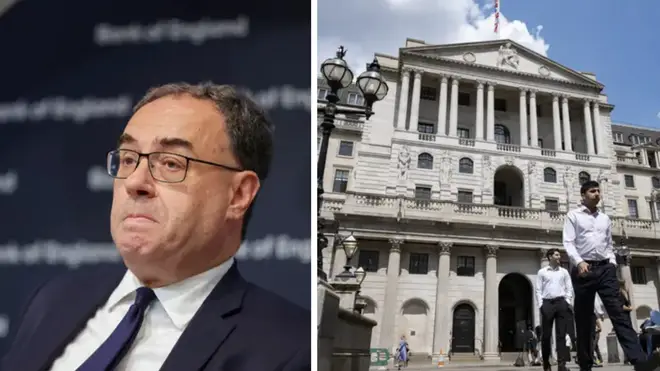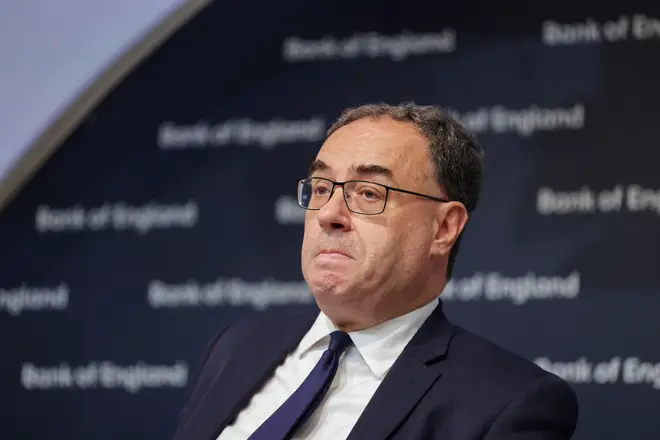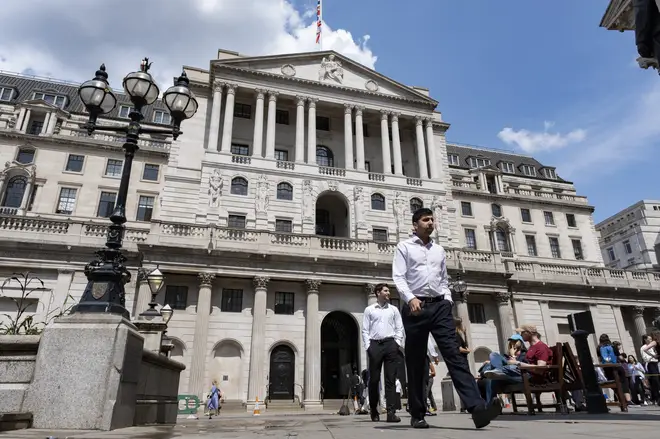
Rachel Johnson 7pm - 10pm
12 July 2023, 14:10 | Updated: 12 July 2023, 14:13

The Bank of England has been accused of "losing control of inflation" as a report says Brits will be facing a £2,300 hit to household pockets in the next year.
Accountants Grant Thornton say that with food inflation in particular still soaring, the cost-of-living crisis is set to continue to hurt British families for another 10 months.
As the crunch is set to end in May 2024, households will find themselves £2,300 worse off on average, as prices continue to outstrip wages.
The report was compiled with Retail Economics, whose CEO Richard Lim said: 'The squeeze on finances has become a war of attrition for many households.
Read More: Million households face £500 a month mortgage hike, Bank of England warns

'While peak inflation may have passed, households still have around ten months of pain to come where cutting back spending will intensify for many.'
The latest hit for Britain's central bank comes on the same day that it warned nearly a million mortgage holders will see their monthly repayments jump by £500 or more in the coming years.
The grim impact of soaring interest rates was underlined in the latest financial system 'stress test' by the bank.
The bank said its models suggested a sharp leap in mortgage costs for many households across the country as the impact of higher interest rates feed through.
However, it said that despite this sharp increase in the mortgage burden, the share of total households with high mortgage burdens - in other words relative to their incomes - remains well below the 2008 peak.

And it said it would take another 3 percentage point increase in interest rates for that burden to exceed that peak.
The average household will see their monthly interest payments go up by about £220 if they are refinancing during the second half of this year and see their rate go up by about 3.25 percentage points.
Around a million people could see repayments soar by at least £500 a month by the end of 2026.
The Financial Stability Report highlighted evidence that borrowers were already looking at longer repayment terms to bring down bills, as well as switching to interest-only.
Renters are also seeing extra financial hardship as landlords push up charges to cover their own ballooning costs.